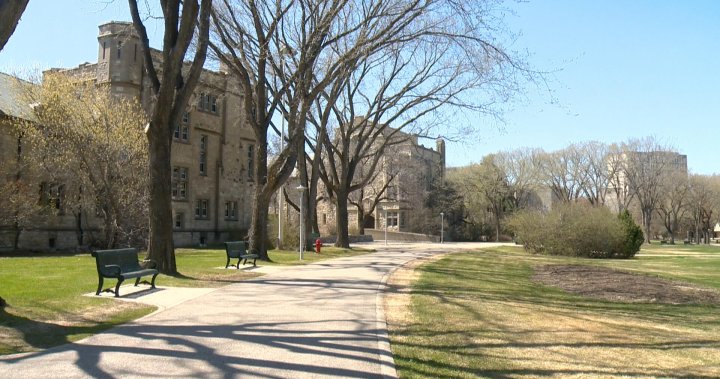Despite a small overall enrolment number increase for the University of Saskatchewan, fewer international students are seen in campus halls.
“It was anticipated with all the federal changes that came in,” said Jerome Cranston, University of Saskatchewan’s vice-Provost. “We knew this was going to have an impact.”
USask saw a drop of 11.5 per cent in international student enrolment, amounting to roughly 280 students.
This decline did not come as a shock to the university due to recent federal changes, such as the intake cap on the number of new study permits issued at the undergraduate level. As well as changes to the number of post-graduation work permits.

Get daily National news
Get the day’s top news, political, economic, and current affairs headlines, delivered to your inbox once a day.
“Both on getting in and then finishing the program and being able to get real Canadian, Saskatchewan work experience has become slightly harder,” said Cranston.
The university stated that it does not anticipate any budget implications from loss of international tuition, as it doesn’t rely on tuition to sustain its programs.
However, students have not yet seen the relief in terms of affordability and housing availability that the federal policies intended to provide.
“We haven’t seen any sort of evidence as of now. Students are still complaining about jobs, housing, and those issues,” said Krunal Chavda, USask Student Union President. “The federal government came out with bringing in one million people, I think that has a lot to do with all the systems that fail.”
Instead of relief, these policies could lead to a less desirable-looking country for international students looking to make the move.
“With all the caps coming into place, I’ve talked to my friends back home as well, and overall, we’re becoming less attractive of a destination for international students to come in,” said Chavda.
“As a country, it makes Canada look slightly less desireable,” said Cranston. “I think Saskatchewan and Saskatoon are in a unique position — we are not experiencing some of the pressures that exist elsewhere in the country.”
The next steps for the university will be consulting the provincial and federal governments to see if there can be a revised “Saskatchewan approach” that involves welcoming all current and potential students.
© 2024 Global News, a division of Corus Entertainment Inc.


